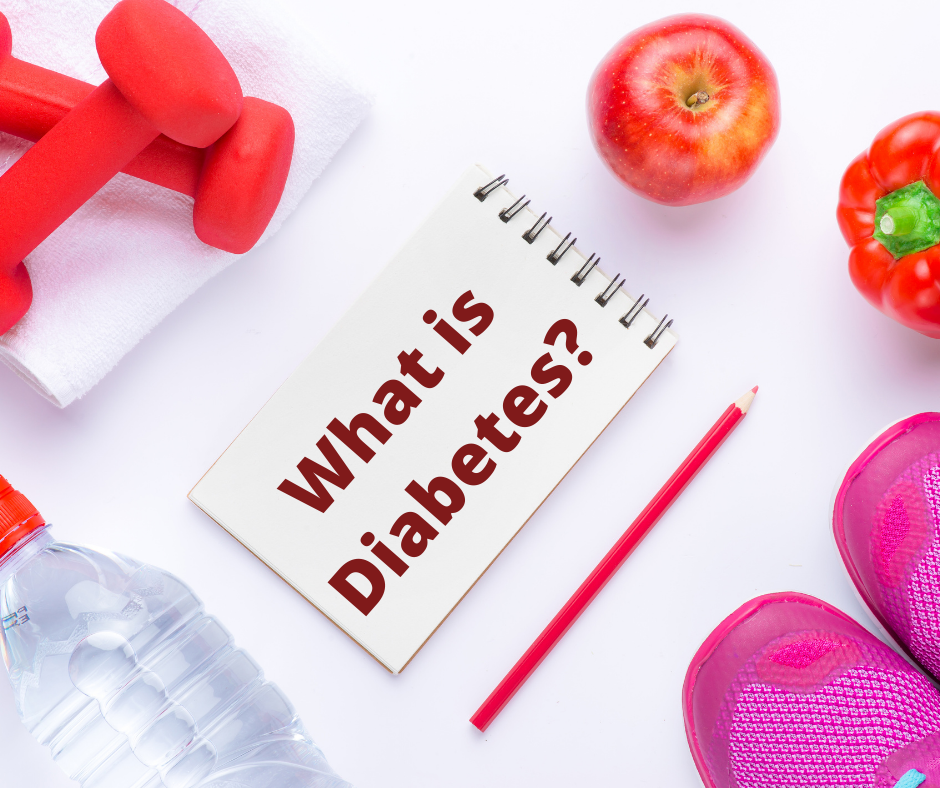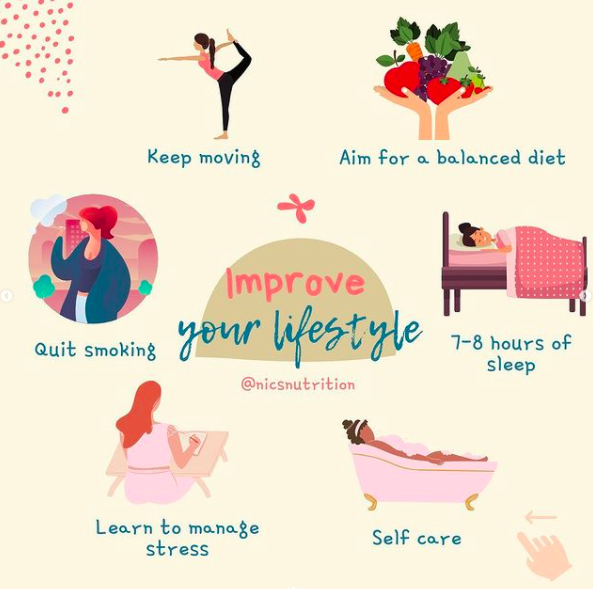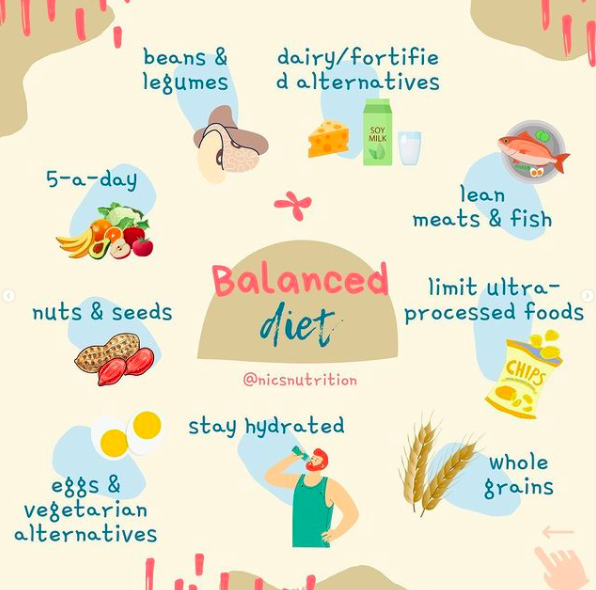
Diabetes affects around 4.8 million people in the UK, with type 2 accounting for 90% of cases.
Type 1 diabetes is when the body’s immune system destroys insulin-producing cells. It is currently unknown what causes type 1 diabetes & usually occurs under the age of 40.
Type 2 diabetes occurs when the body fails to create an adequate amount of insulin or it doesn’t function properly (insulin resistance). Type 2 diabetes is associated with lifestyle factors & usually develops after the age of 40.
Firstly – it’s important to clarify that we cannot reduce our risk of Type 1 diabetes which is an autoimmune condition and is not associated with your weight, diet or lifestyle. However, the risk of developing Type 2 diabetes – can be increased by both non-modifiable and modifiable factors, such as:
- Our age – Your risk starts to increase after the age of 40 and grows with age
- Our ethnicity – If you are South Asian, Black African or African-Caribbean, your risk will increase even at a younger age
- Family history – If you have a parent or sibling with type 2 diabetes
- If you are already diagnosed with certain medical conditions such as hypertension, heart disease or PCOS.
- If you have a BMI of 25+
Both Type 1 & Type 2 diabetes can cause symptoms like extreme thirst, losing weight without trying to do so and feeling tired. It can also increase your risk of getting difficulties with your eyes, heart and nerves.
There are many myths and misconceptions about Type 2 diabetes – especially if you search the internet! If you are at a higher risk of developing diabetes or have been told by your GP that your blood glucose levels are higher than normal (prediabetes), it can feel daunting and overwhelming to deal with – but the good news is, we can reduce our risk of type 2 diabetes through making changes to our diet & lifestyle – but how can we do this?

𝐇𝐎𝗪 𝐓𝐎 𝐏𝐑𝐄𝐕𝐄𝐍𝐓 & 𝐌𝐀𝐍𝐀𝐆𝐄 𝐃𝐈𝐀𝐁𝐄𝐓𝐄𝐒 𝐓𝐘𝐏𝐄 𝟐?
Aim for a balanced diet – Aim for at least 5 portions (a portion is a handful) of fruits and vegetables a day. Fresh, frozen and tinned all count, just make sure that fruit is canned in juice and not syrup. Spread fruit intake throughout the day to avoid a large carbohydrate load all at once.
Choose lower-fat dairy foods – Such as semi-skimmed or skimmed milk, diet or sugar-free yoghurt, cottage cheese and extra light cream cheese. Include lean protein at your main meals e.g. lean red meat, chicken with no skin, white fish, beans, lentils, nuts and seeds (nuts & seeds contain healthy fats which are good for your heart).
Include lean proteins – Aim for at least two portions of oily fish a week (source of omega-3 fatty acids which helps with blood flow). A portion is around a palm-size amount and sources of oily fish include mackerel, sardines, pilchards and fresh tuna (the canning process of tuna removes the healthy oils). Buy fish canned in water, or drain it if it’s canned in brine.
Reduce salt intake – Excess salt (more than 6g a day – which is about one level teaspoon) can lead to high blood pressure, a leading cause of stroke and heart disease. As 75% of the salt that we eat is already in foods aim to cut down on processed foods, salty foods such as crisps and salted nuts and flavour foods with herbs and spices instead of salt.
Keep moving – It’s recommended to aim for at least 150 minutes of moderate activity per week such as a brisk walk or gentle cycle, or 75 minutes of more intense exercise such as running or a HIIT class. We should also aim to include 2 sessions a week of resistance and strength-building activities such as yoga, pilates or weight training which helps to maintain and increase muscle mass. Find an activity that makes you happy – share your fave way to exercise in the comments👇🏻!
Maintain a healthy weight – If you’re at a higher risk of type 2 diabetes and have a BMI of 25+, research has shown that reducing your body weight by 5% can lower your risk by 50%. If you aren’t sure how to manage weight loss, speak with your GP who may be able to refer you to a diabetes support & education programme, or contact a registered dietitian for help.
Don’t smoke – Quitting smoking can improve your health as well as lower your risk of diabetes-related cardiovascular diseases.
Manage your stress and sleep – Chronic stress may increase blood glucose levels and blood pressure, which is why it’s important to manage your stress. Journalling & practicing mindfulness may help to reduce your stress and help you to sleep better. Sleep allows your body to regenerate & recover, as well as control your hunger hormones. Aim for at least 7-8 hours of sleep every night.
Reduce alcohol consumption – Aim to limit intake to no more than 2-3 units/day, with at least 2 alcohol-free days a week: 1 unit = ~ 1/2 pint beer, 25ml spirit, 100ml wine. Try to opt for a drink with a lower ABV %, such as low alcohol wine or experiment with ‘mocktails’, and alcohol-free alternatives as a treat! I’m a huge fan of alcohol-free spirits with a mixer.

Diabetes UK recommends that everyone with diabetes should see a registered dietitian at diagnosis, and then have regular reviews (you can ask your GP for a referral).
